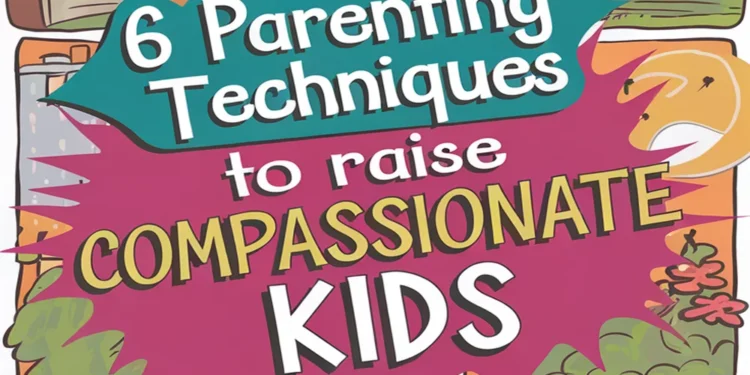To raise compassionate kids, model empathy through your actions, and encourage open conversations about feelings. Teach perspective-taking by discussing different viewpoints, and volunteer together as a family to strengthen bonds and understanding. Foster gratitude by sharing daily highlights and expressing thanks. Finally, set boundaries to emphasize their importance in healthy relationships. By implementing these techniques, you’re laying a strong foundation for kindness in your children—there’s even more valuable advice waiting for you!
Model Empathy Through Your Actions
One of the most powerful ways to raise compassionate kids is by modeling empathy through your actions. When you show kindness, whether it’s helping a neighbor or comforting a friend, your children notice. They’re keen observers, absorbing the lessons you demonstrate daily. Research shows that parents who express empathy foster similar traits in their children. It’s important to share moments of compassion, discussing why your actions matter. In everyday situations, if someone’s feeling down, ask your child how they might help or what words might offer comfort. Such discussions not only reinforce empathetic behavior but also encourage emotional awareness. By consistently demonstrating empathy, you create a nurturing environment where your kids learn the value of compassion naturally.
Recommended Items
Discover these thoughtful items and tools that can help nurture compassion in your little ones—take a look!
Products
Encourage Open Conversations About Feelings
When you encourage open conversations about feelings, you create a safe space for your kids to express themselves. Ask open-ended questions like, “How did that make you feel?” or “What’s on your mind?” This invites them to share without fear of judgment. Validating their emotions, regardless of whether you agree, fosters trust and emotional intelligence. Regularly check in about their day, and express your feelings too—modeling vulnerability shows it’s okay to open up. Use age-appropriate language and be patient; sometimes, kids need time to articulate their thoughts. You’ll help them navigate their emotions, which is essential for developing empathy. Ultimately, this practice equips them to connect with themselves and others, laying the foundation for compassionate relationships.
Action Steps to Raise Compassionate Kids
Teach Perspective-Taking
Teaching perspective-taking is a crucial skill that helps children understand and empathize with others’ feelings and experiences. Start by encouraging your child to reflect on different viewpoints during discussions. Ask questions like, “How do you think they feel?” or “What might have led them to act that way?” Role-playing can also be effective; create scenarios where they can step into someone else’s shoes. You might share stories and then discuss the characters’ emotions and motivations. Research shows that children who practice perspective-taking are more empathetic and socially aware. Reinforce this skill by praising your child’s efforts at understanding others, fostering a compassionate mindset that can last a lifetime. Nurturing perspective-taking builds strong, empathetic relationships throughout their lives.
Volunteer Together as a Family
Volunteering together as a family not only strengthens your bond but also instills a sense of compassion and community in your children. Engaging in community service helps your kids understand the struggles of others, fostering empathy. Research shows that children who volunteer develop a greater awareness of societal issues, leading to a lifelong commitment to helping others. Choose activities that resonate with your family’s interests—whether it’s serving at a soup kitchen, organizing a neighborhood clean-up, or visiting nursing homes. After volunteering, discuss the day’s experiences together; ask your kids how they felt and what they learned. These conversations deepen their understanding of compassion and motivate them to make a difference, creating a ripple effect that encourages others in your community.
Foster Gratitude and Appreciation
Building on the values instilled through volunteering, fostering gratitude and appreciation in your children can further enhance their compassionate nature. You can start by modeling gratitude in your daily life—express thanks for simple things, like a meal or a kind gesture. Encourage your kids to keep a gratitude journal, where they note things they’re thankful for each day; studies show this boosts overall happiness and empathy. Make it a family routine to share daily highlights at dinner, reinforcing the importance of recognizing the good in life. Additionally, involve them in community efforts that highlight gratitude, like thank-you notes to helpers. These practices not only cultivate appreciation but also strengthen family bonds, nurturing a deeper sense of compassion.
Set Boundaries and Discuss Their Importance
While it may feel uncomfortable at times, setting boundaries is essential for fostering compassion in children. When kids understand their limits, they learn to respect themselves and others, paving the way for empathy. It’s important to discuss these boundaries openly, explaining their importance. This helps your child understand that boundaries are not just rules, but tools for healthy relationships.
- Empowers children to express their feelings safely.
- Encourages mutual respect and understanding among peers.
- Teaches the value of consent and personal space.













